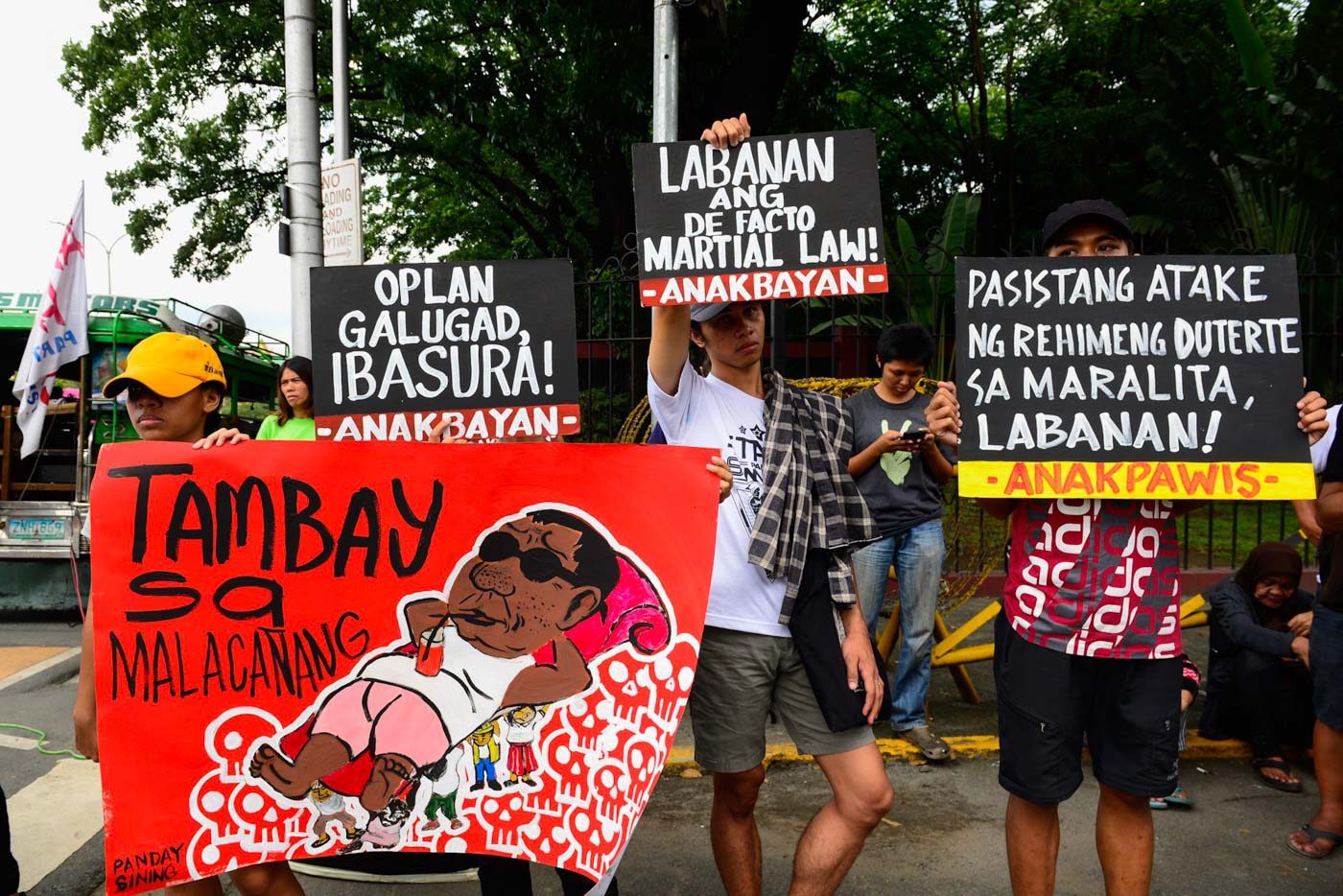SUMMARY
This is AI generated summarization, which may have errors. For context, always refer to the full article.

MANILA, Philippines – Two lawmakers from the progressive Makabayan bloc warned that the proposed anti-terrorism bill was designed to “normalize” martial law in the country and “desensitize” Filipinos to bloodshed and killings.
On Monday, June 25, Kabataan Representative Sarah Elago and Anakpawis Representative Ariel Casilao expressed opposition to the still unnumbered bill called the Prevention of Terrorism Act.
This bill is a consolidation of two measures – House Bill Nos. 5507 and 7141 – proposed by Pangasinan 5th District Representative Amado Espino Jr, seeking to amend parts of Republic Act No. 9372 or the Human Security Act.
“[President Rodrigo] Duterte’s new and insidious tactic is to normalize the atmosphere of martial law – through legislation, through his casual cursing in front of national television, through the conscious effort to desensitize the people to the bloodshed and killings,” said Elago.
The proposed anti-terrorism bill was tackled by the technical working group of the House committees on public order and safety as well as national defense and security on Monday, the same day farmers and Anakpawis activists staged a protest against the bill outside the House of Representatives.
Elago said the anti-terrorism bill seeks to expand the coverage of terrorism in the country and proposes a “catch-all” definition for government critics. (READ: State surveillance: A necessary evil?)
Currently, the Human Security Act states that terrorism covers crimes “sowing and creating a condition of widespread and extraordinary fear and panic among the populace, in order to coerce the government to give in to an unlawful demand.”
But the anti-terrorism bill removes this phrase and replaces it with the following: “[W]hen the purpose and/or effect of any of the above felonies, crimes, or acts, by their nature or context, is to intimidate a population, or to compel a government, an international organization, or any person or entity, to do or to abstain from doing any act.”
“This means that a simple workers’ strike, street parties, or flash mobs can be considered as terrorism,” explained Elago.
“The Duterte administration is drawing all cards against the people. With this power provided in the law, the Duterte administration will no longer have to bother with a nationwide declaration of martial law; the law itself provides for perpetual military rule.”
Casilao, meanwhile, described Espino’s bills as “draconian” and “weapons of mass destruction” against human rights.
“These draconian bills have grave impact on the state of our human rights which today is already under attack from all sorts of oplans hatched by the Duterte government. They have Oplan Kapayapaan, Tokhang, and Oplan Rody,” said Casilao.
“The entire Filipino people should reject these bills for they are added fangs to a rising tyranny. They are weapons of mass destruction of our human rights.”
Under the legislative process, House panels form technical working groups to finetune a proposed bill before it is put up for a vote in the committee level. Once majority of committee members give the go signal, the bill will then be brought to the plenary for 2nd and 3rd readings.
A House bill will have to go through another 3 readings at the Senate before the measure can be transmitted to Malacañang. – Rappler.com
Add a comment
How does this make you feel?
There are no comments yet. Add your comment to start the conversation.